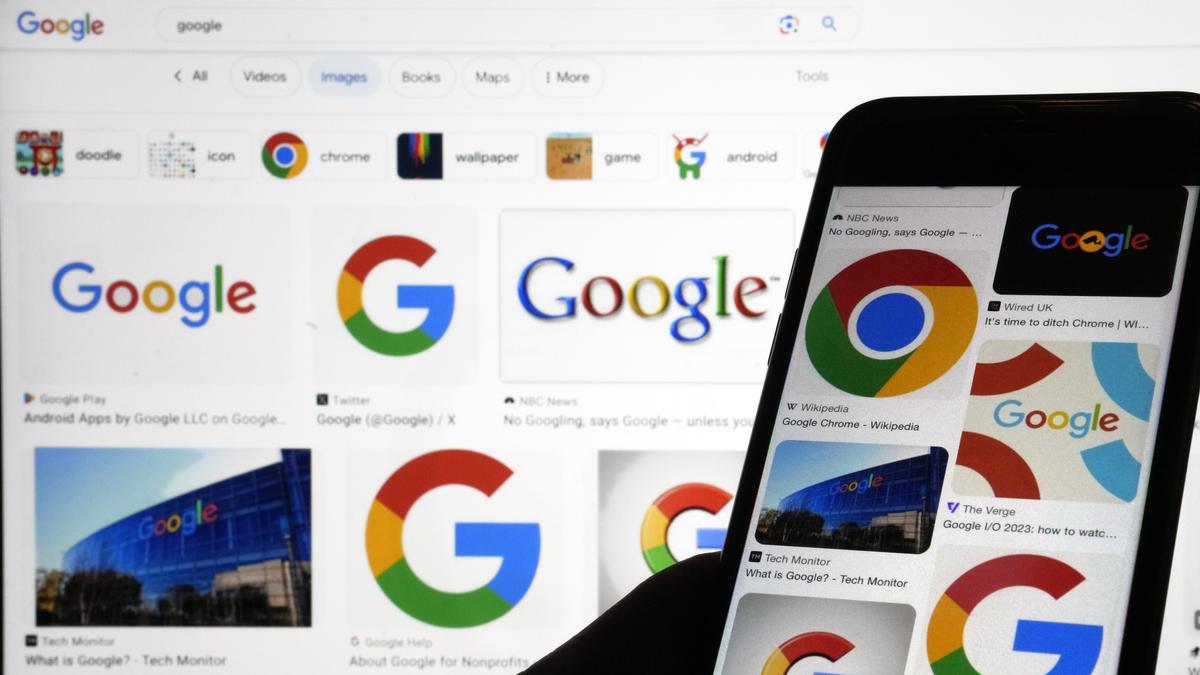
Why is Google on trial in the United States? | Explained Premium
The Hindu
What are the allegations brought against Google by the Department of Justice? Will the hearing have a bearing on how other mega Internet companies such as Amazon and Meta have dealt with ‘anti-trust’ issues?
The story so far: On September 12, Justice Amit Mehta of the U.S. District Court for the District of Columbia started hearing what is being described as the most important case about the future of the Internet. Over the course of the next 10 weeks, Justice Mehta will hear arguments of the U.S. Department of Justice (DoJ) and several U.S. States to the effect that Google used illegal tactics to maintain a monopoly in online search. Several top officials from Google, including CEO Sundar Pichai, are expected to be called in as witnesses. If the allegations against the $1.7 trillion Silicon Valley giant are upheld, Justice Mehta will begin a separate trial to decide on the action that needs to be taken. Other mega Internet companies such as Amazon and Meta are keenly watching the trial, as it will have major implications on how their own ‘anti-trust’ issues are dealt with.
The key allegation against Google is that its “arrangements” with Apple and other companies to be the default search engine on their devices, is unlawful monopoly building. The DoJ filed the charges on October 20, 2020, arguing that Google throttled competition from other search engines and caused harm to consumers, making it a prime anti-trust — targeting monopolies — case. “Two decades ago, Google became the darling of Silicon Valley as a scrappy start-up with an innovative way to search the emerging internet. That Google is long gone,” the DoJ had said in its initial filing.
Since the extent of harm that has been caused to consumers is the key deciding factor in anti-trust cases, the DoJ is expected to show how the default search position for Google on various devices limited options available to consumers. Focus may also fall on how a lot of the real estate on Google’s search result pages is often taken up by the company’s own non-search services — such as user reviews — at the cost of rival services. Google’s default position also creates a ‘feedback loop’ in which consumers are regularly giving the search engine their personal preferences, allowing Google to fine-tune its algorithm and deliver better search results and advertisements. “Google’s contracts ensure that rivals cannot match the search quality ad monetisation, especially on phones,” Kenneth Dintzer, the main lawyer for the DoJ in this case told the Associated Press. “Through this feedback loop, this wheel has been turning for more than 12 years. It always turns to Google’s advantage.”
However, Google argues that the reason it controls 91% of the global search market is that it provides better quality of services, rather than a lack of competition. Google says that consumers can always choose to change the default option, and that any deals it has with device manufacturers like Apple are above board.
While both Apple and Google have been secretive about their cooperation, several reports indicate that such a deal was renewed in 2017. According to The New York Times, while Google paid Apple to the tune of $1 billion in 2014, the latter now receives between $8 billion and $12 billion, amounting to 9% of its annual gross profits. Google’s willingness to pay such a huge amount is driven by the fact that 75% of its search revenue comes from iPhone and iPad users. It is also a precautionary measure as it holds back the creation of a rival search engine by Apple, one of the few companies that have the wherewithal to take on Google.
Google also understands a key lesson from behavioural economics — most people will not bother to change the default options made available to them.
Google is no stranger to anti-trust cases, though not in the U.S. In 2017, it was fined $2.7 billion by the European Union for showing undue preference for its own services in search results. The EU has imposed a total fine of 8.25 billion euros on Google over three anti-trust investigations. The EU has also trained its anti-trust guns on other U.S. online giants such as Meta and Amazon.





















 Run 3 Space | Play Space Running Game
Run 3 Space | Play Space Running Game Traffic Jam 3D | Online Racing Game
Traffic Jam 3D | Online Racing Game Duck Hunt | Play Old Classic Game
Duck Hunt | Play Old Classic Game











